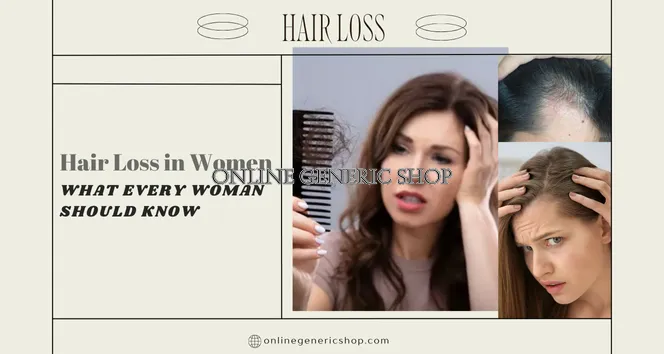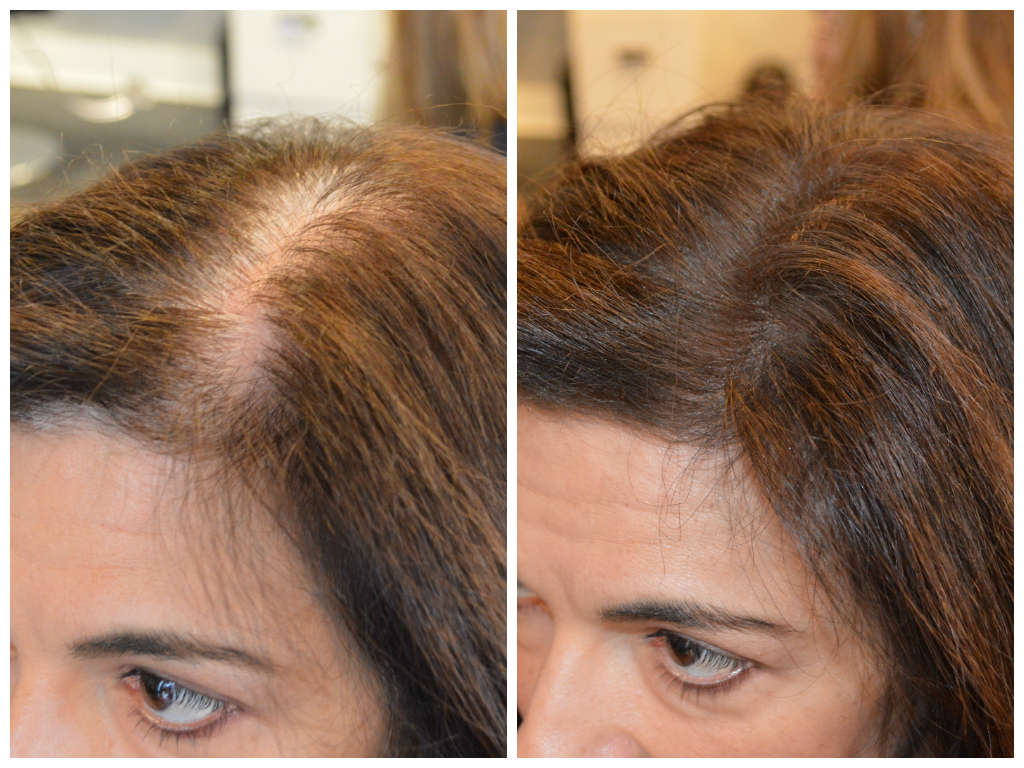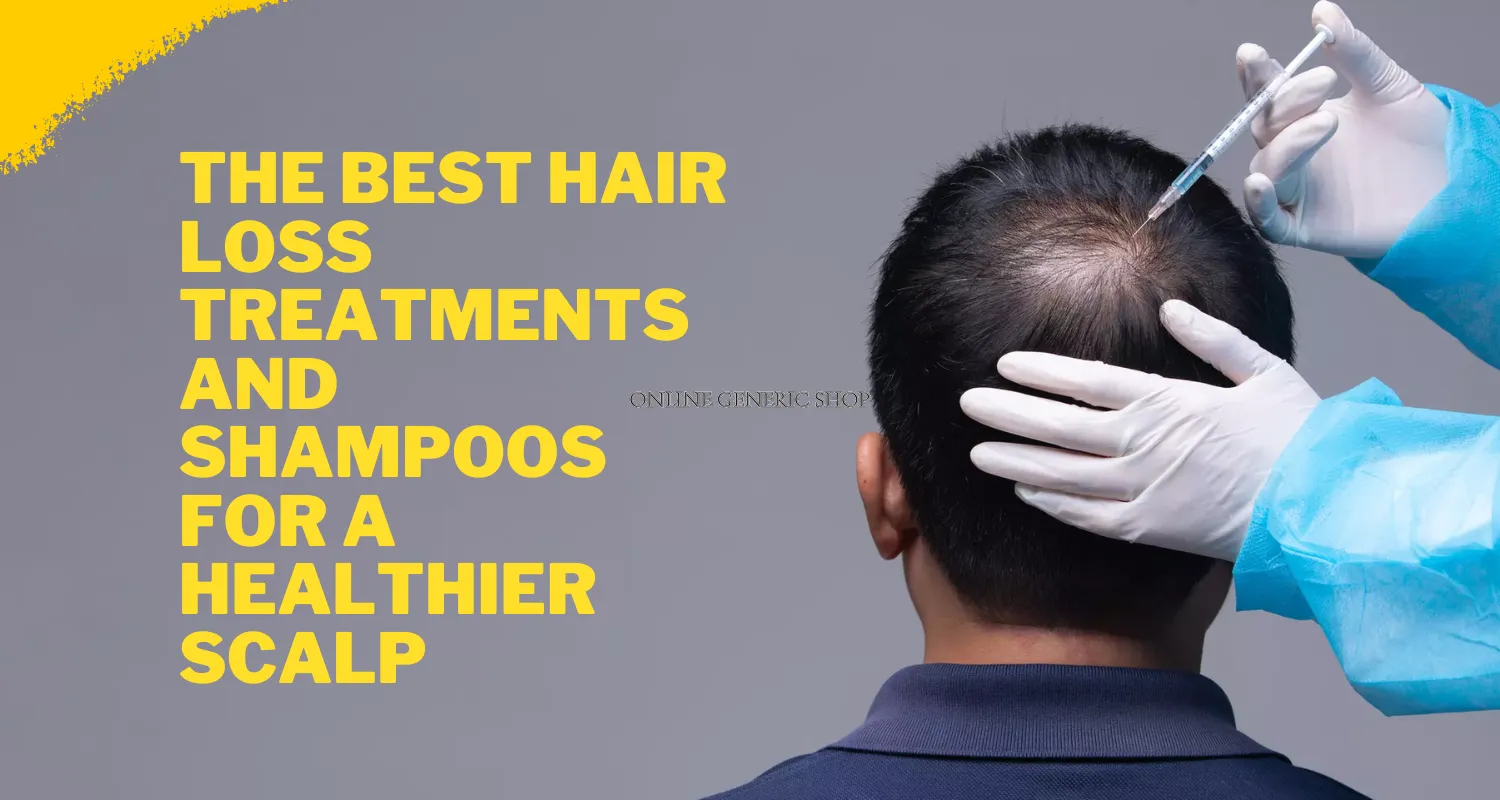Hair Loss in Women: What Every Woman Should Know

Hair Loss in Women: What Every Woman Should Know
Hair is often considered a symbol of beauty and identity, making hair loss a distressing experience for many women. While it’s commonly associated with men, Hair loss in women is a prevalent issue with unique causes and solutions. Understanding the underlying factors and exploring effective treatments is the first step toward regaining confidence and hair health.
Understanding Hair Loss in Women
1. Types of Hair Loss
-
Androgenetic Alopecia (Female Pattern Hair Loss):
- The most well-known sort of balding in ladies.
- Characterized by thinning hair, especially at the crown and parting line.
-
Telogen Effluvium:
- Impermanent hair shedding because of stress, hormonal changes, or sickness.
- Often occurs after events like childbirth, surgery, or severe emotional stress.
-
Alopecia Areata:
- An autoimmune condition causing patchy hair loss.
- Can progress to total hair loss on the scalp or body.
-
Traction Alopecia:
- Brought about by hairdos that draw on the hair, like tight pig tails or plaits.

2. Causes of Hair Loss in Women
-
Hormonal Changes:
- Pregnancy, menopause, and thyroid issues can disturb hair development cycles.
-
Genetics:
- A family history of hair loss increases the risk of androgenetic alopecia.
-
Nutritional Deficiencies:
- Lack of iron, zinc, or biotin can weaken hair and cause shedding.
-
Medical Conditions:
- Polycystic ovary syndrome (PCOS), lupus, and scalp infections may lead to hair loss.
-
Stress:
- Ongoing pressure can drive hair follicles into a resting stage, causing shedding.
Recognizing the Signs of Hair Loss
- Noticeable thinning on the top of the head.
- Excessive hair shedding when brushing or washing.
- Bald spots or patchy hair loss.
- Widening part or receding hairline.
Effective Treatments for Hair Loss in Women
1. Over-the-Counter Solutions
- Minoxidil (Rogaine):
- FDA-approved treatment for female pattern hair loss.
- Encourages hair regrowth and slows further loss.
2. Prescription Medications
- Anti-Androgens:
- Drugs like spironolactone block hormones that cause hair thinning.
- Oral Contraceptives:
- Can regulate hormone levels and reduce hair loss in some women.
3. Nutritional Supplements
- Iron, biotin, and vitamin D support hair health.
- Omega-3 fatty acids and protein-rich diets can strengthen hair follicles.
4. Professional Treatments
- Platelet-Rich Plasma (PRP) Therapy:
- Utilizes your blood's development variables to animate hair development.
- Laser Therapy:
- Low-level lasers improve blood flow to the scalp, promoting hair growth.
- Hair Transplant Surgery:
- For severe cases, hair follicles can be transplanted from one area to another.
Lifestyle Tips to Prevent Hair Loss
-
Adopt a Gentle Hair Care Routine:
- Use sulfate-free shampoos and avoid excessive heat styling.
-
Avoid Tight Hairstyles:
- Let your hair down to prevent traction alopecia.
-
Manage Stress:
- Practice yoga, meditation, or other stress-relief techniques.
-
Maintain a Balanced Diet:
- Include leafy greens, nuts, fish, and whole grains for optimal hair health.
-
Stay Hydrated:
- Proper hydration is essential for healthy hair growth.

When to See a Doctor
- If hair loss is sudden or accompanied by symptoms like itching, redness, or pain.
- When over-the-counter solutions fail to show improvement.
- For hair loss linked to an underlying medical condition.
FAQs About Hair Loss in Women
Q1: Can hair loss in women be reversed?
- Yes, in many cases, hair loss can be reversed or managed with proper treatment and care.
Q2: Does pregnancy cause permanent hair loss?
- Hair loss after pregnancy (telogen effluvium) is usually temporary and resolves within months.
Q3: Are hair extensions safe for thinning hair?
- While extensions add volume, improper use can worsen hair thinning by causing traction alopecia.
Q4: Can menopause cause hair loss?
- Yes, hormonal changes during menopause can lead to thinning hair or shedding.
Q5: How long does it take for treatments to show results?
- Most treatments require 3–6 months to show noticeable improvement.
Conclusion
Hair loss in women is a manageable condition when addressed promptly and appropriately. By identifying the root cause, adopting a healthy lifestyle, and seeking professional advice, you can restore your hair’s vitality and your self-confidence. Remember, every woman’s journey is unique—don’t hesitate to explore your options and find a solution that works best for you.



